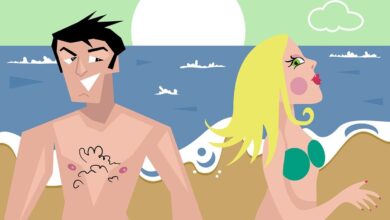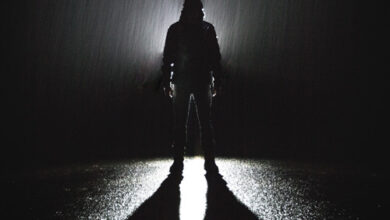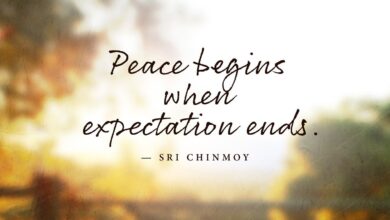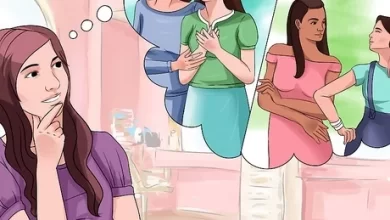
DAY ONE: HOW TO CHANGE NEGATIVE THINKING — page 4
The skill of being happy
Joe was brought back to the seminar room by the solid tones of the speaker once more. Richard began explaining that feelings and emotions are not things that we have; instead, they are things that we do.
I often have clients who tell me, ‘I have depression,’ so I usually go, ‘OK, so hand it to me, and I’ll have a look at it.’ They look at me as if I’m the crazy one. They talk about anxiety as if it goes away and comes back. Anxiety doesn’t work like this. We don’t have depression and anxiety. We create these feelings through what we do inside our head.
Richard paused. Joe digested this information. The audience was deadly silent in anticipation. If we build cheerful, happy and successful habits, we have happy, successful lives. If we’re
going to build grumpy, disappointed, depressing habits, we just get good at having bad feelings. Happiness is an activity: it’s a skill to master. The more you practise, as with any other skill, whether it’s riding a bike or speaking a new language, the better you get. It’s the same with when you think about your past. To me, the Dalai Lama summed it up quite well by saying that sometimes bad things happen. The key is that you just don’t dwell on them. If you throw a pebble into a pond it makes ripples for a while, but eventually it smoothes out. When people dwell on things too much they blow them out of proportion.
Joe thought about his father, about Lisa, about his boss, about how he had been forced into presenting before the Board of Directors at work next month. He thought about how out of shape he was and how he longed to be free from cigarettes and fit again. He remembered all the tough times he had experienced in the past. But now, as he started to make the images of everything that had gone wrong, he found himself almost instinctively manipulating them, pushing them away, making them smaller and sending them far away, even before they could produce bad feelings.
For instance, being betrayed and reliving the same stuff over and over doesn’t help you. I tried it. I went to a therapist, and he told me to think of someone who treated me badly and imagine them in the chair. Then he told me to beat up the chair. He called this Gestalt therapy! He figured that if you take out your anger on the chair, it will help you.
I don’t agree, although I must say I do have a black belt in Gestalt therapy. I fear no furniture.
Now, this therapist told me to imagine someone who hurt me in the chair, then asked did I feel angry. He told me to imagine someone else I hated in the chair and asked if I felt angry, and I told him I felt really angry. He told me to hit him and I would feel better, so I jumped up and hit the therapist, and I must admit … I did feel better.
The crowd simmered with laughter. Joe grinned from ear to ear.
You have to learn from your past and move forward, because we always have a choice, taking our past and living a better future or taking our past and limiting our future.
Once you know that, you can get into a habit of learning the lessons from your past instead of dwelling on it. That will allow you to become a wiser person and will help you create a better future for yourself and make better decisions.
For the first time, Joe considered that it was possible that he was actually free of his mistakes of the past and was free to live a different future if he decided to. For a split second his critical voice attempted to stop him and make him doubt himself, but he simply made the voice sound ridiculous. He wasn’t going to listen to Mickey Mouse.
It got a little easier each time he tried it. Richard continued to talk about how we all have the ability to look forward into the future or look into the past. He explained that just as trying to drive by always looking into a rear-view mirror would cause you to crash, the same is true of
focusing on bad memories.
Richard soon began wrapping up for the day:
The best thing about the past is that it’s over. The best thing about the present is that it’s a gift,
and the best thing about the future is that it’s full of wonderful opportunities to feel good. Now, tonight while you sleep and dream, I want you to let all the learning and understanding of today seep inside your mind so that you find yourself operating your brain in a more effective way.
He left the stage to a huge round of applause. Joe sat there transfixed. It had been a fascinating day.
He shook himself out of this trance and remembered the brown-haired woman. He turned around in his seat, hoping to see where she was, but she was already moving and on her way out the door. He frowned. Probably off to meet her boyfriend, he said to himself. But Joe remembered Mickey Mouse. He changed the voice as he’d done before, and again it worked.
Anna began talking to him, as he squirmed for an exit. ‘What Richard was talking about – that’s kind of what we do. We help people feel better about the past.’
Ross piped up from Joe’s other side. ‘No, it’s different. You get people to relive the past bad memories over and over. We get people to change how they think about the memories so that they don’t have to relive them ever again.’
‘Well, sometimes we get them to think differently and get closure with the bad memories, just like Richard. We do it through the acceptance of the trauma that has been analysed and understood.’
And they started arguing. Joe rolled his eyes to heaven jokingly. He was starting to enjoy their verbal jostling and becoming interested in their different points of view.
On their way out of the building, Joe went up to Alan to thank him for his advice earlier. ‘Thanks for everything today, Alan.’
‘You’re welcome, Joe. Some pretty cool stuff, huh?’ Alan replied enthusiastically.
‘Yes, very interesting indeed. I suppose it’s really about the idea that we can change our feelings.’
‘Of course. The one thing in life that you can control is the inside of your head. If someone went into your house and painted horrible picture on your walls, you wouldn’t leave them there, would you? No, of course not. You’d paint over them. Then why leave bad ideas inside your head? Unwanted negative images or horrible voices … there’s no point. You have to take control and start playing with it immediately. So what most people do is spend most of their time practising feeling bad. The secret is to realize that you are, as Richard explains it, the driver of your own bus.’
Joe nodded.
‘One more thing, Joe. I noticed that you haven’t been taking any notes at the breaks. I highly
recommend that you get yourself a personal journal. Record everything you’ve been learning, all of these ideas. Become a student of your life, and you’ll learn to improve your world. When you go home tonight, review the ideas that you learned about here. Record them, and you’ll be able to use them the rest of your life.’
Joe said good-bye to Alan and decided to pick up a journal on his way home. The cover was brown leather and the pages were thick and smooth. He had learned some fascinating techniques to change how he thought and felt. He wanted to write down the things he had learned about the control he could have over the way he experienced the world. He had gone through life hoping for the best, but now he had the tools for reaching for the best.
His thoughts moved back to the brown-haired woman. He wanted to talk with her. She seemed lovely. But he knew nothing about her. Maybe she was already involved romantically. Maybe she wasn’t. Maybe she’d be interested in him. Maybe she wouldn’t be. His critical internal voice fought to drown out his hopeful internal voice, but this time Joe and Mickey Mouse had control.
When he arrived home he picked up the leaflet that had convinced him to attend the course. He studied it carefully. Is this the real deal? he wondered. Sure, the techniques worked, but could they last? A leopard can’t change its spots. Then he remembered what Alan had said: ‘Maybe reality isn’t what you think it is. Maybe whatever you think becomes your reality.’
That night Joe fell into an easy sleep again. Just before dozing off, he decided that he wasn’t a leopard, and his thoughts and feelings weren’t spots. Tomorrow, he thought, would be another interesting day.








One Comment